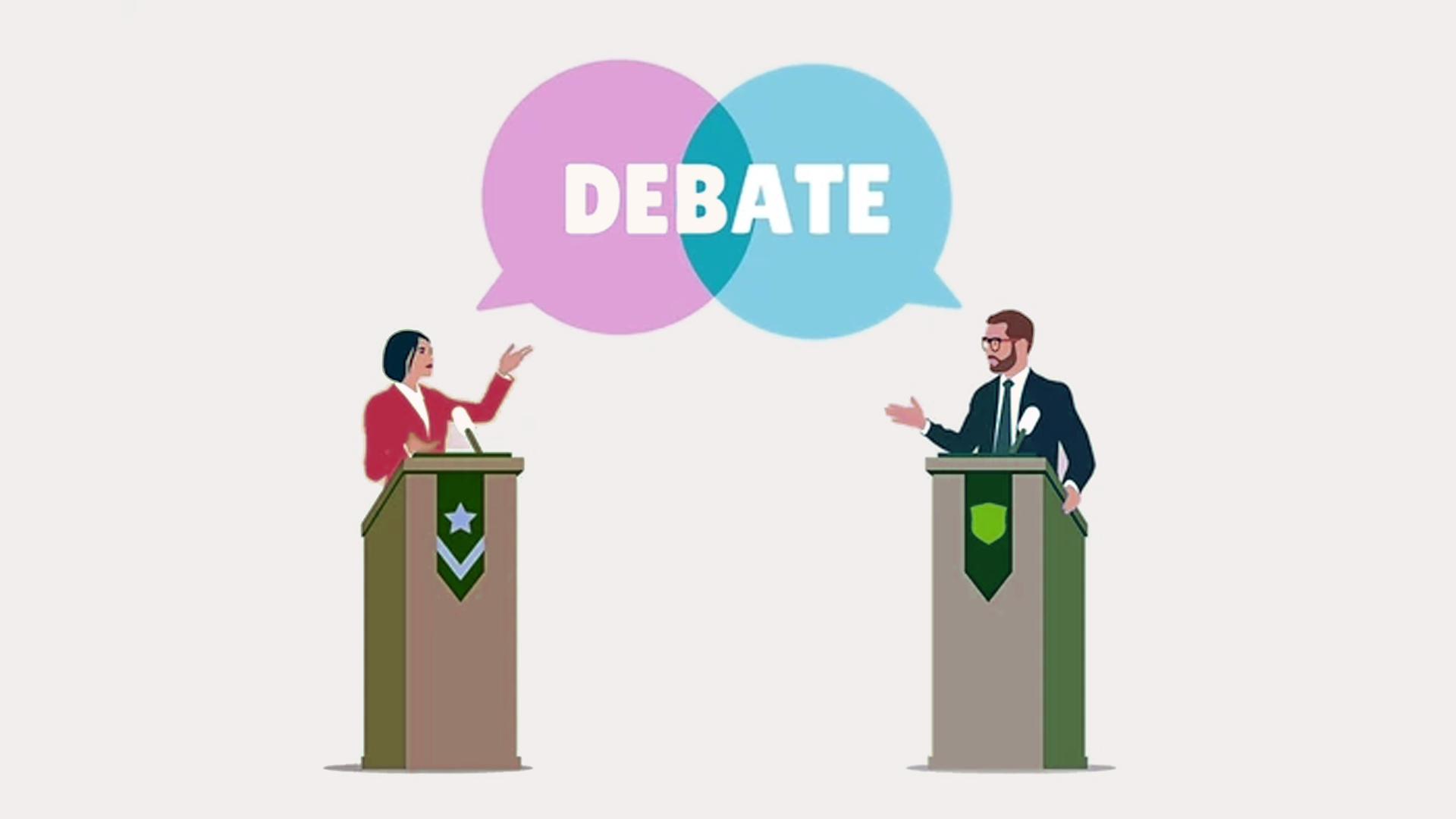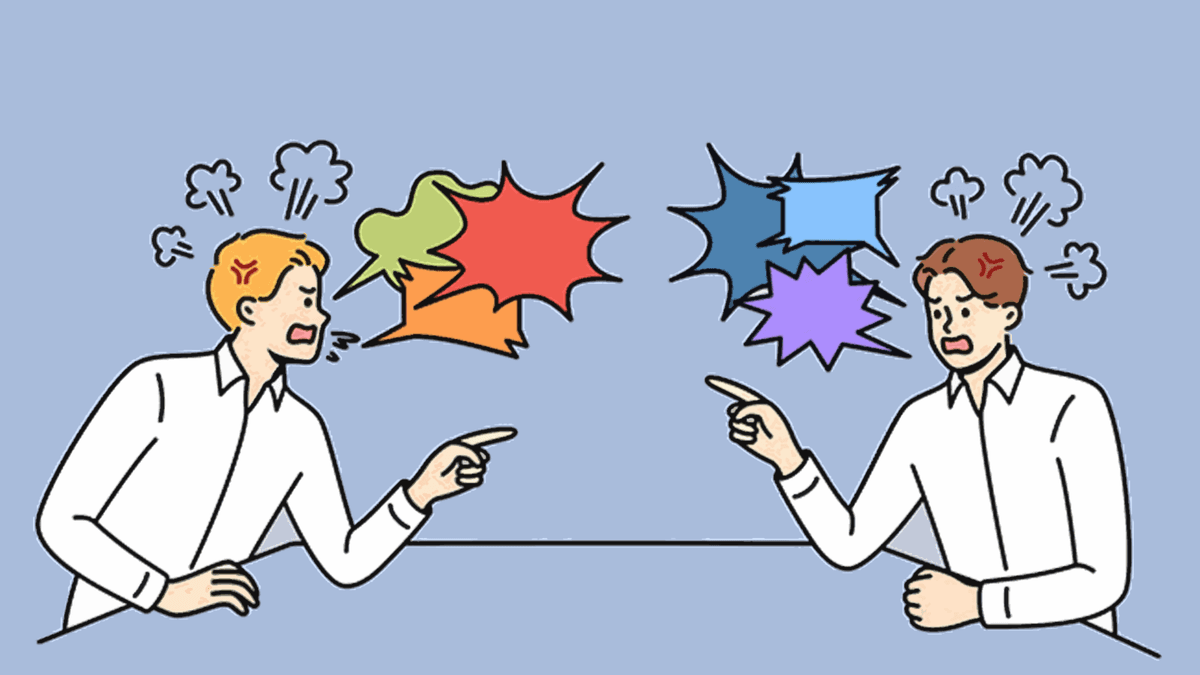Foundations of Debate

Two students standing at podiums facing each other, ready to debate.
The Dive
Debate is one of humanity’s oldest tools for solving disagreements, stretching back thousands of years. At its heart, debate is the art of persuasion—using words and reasoning to show why one idea makes more sense than another. It’s not just about winning; it’s about exploring ideas, testing arguments, and learning to see the world from different angles.
In ancient Greece, debate became the classroom of democracy. Thinkers like Socrates asked hard questions and challenged students to defend their ideas. The practice didn’t stay in Greece—Roman orators like Cicero and Quintilian became famous for their ability to argue both sides so skillfully that they could corner their opponents without raising a sword. Debate had become a battlefield of words instead of weapons.
For much of history, debate was a privilege of the elite. Medieval scholars in universities argued over science, religion, and philosophy, sharpening their reasoning through structured disputes. But unlike today, ordinary people rarely had access to this tool. Debate was something you learned if you belonged to the right class or had the right teacher.
Fortunately, debate has grown into something much more democratic. Today, students around the world—no matter their background—practice debate as a way to sharpen their voices. From classrooms to youth competitions, kids learn that debating isn’t about shouting the loudest; it’s about reasoning clearly and listening carefully.
The purpose of debate goes far beyond winning points. A good debate helps both sides understand each other better, even if they still disagree. It pushes us to ask: Are my reasons strong? Do I have evidence to back them up? Could I explain this to someone who sees things differently?
Modern debates are structured, with roles and rules to keep things fair. The proposition is the statement being debated. The affirmative supports it, the negative challenges it. Rebuttals give each side a chance to respond directly. These rules turn disagreements into learning opportunities rather than endless arguments.
Most importantly, debate is a healthy way to handle conflict. It forces us to slow down, think through our beliefs, and avoid logical traps. Instead of just saying 'I’m right,' we practice showing why. And in the process, we grow more open-minded, more thoughtful, and better prepared to participate in the messy but essential conversations of democracy.
Why It Matters
Learning debate skills helps you become a better thinker, listeners, and leaders. In a world full of arguments—online, in politics, and in daily life—debate shows us how to disagree with respect and persuade with clarity. It reminds us that strong voices aren’t the loudest; they’re the ones backed by reason, empathy, and evidence.
?
What’s a simple topic you could debate with friends at school?
How does listening carefully make someone a stronger debater?
Why is it important to separate criticizing ideas from criticizing people?
Which do you think is harder in debate—speaking or rebutting—and why?
How might debate skills help you outside of school, in everyday life?
Dig Deeper
The New York City Urban Debate League is the largest in the nation. Over the past ten years, it has helped over 100 New York City schools get access to debate training for students. Francis and Erick are two middle school students who participate in the league. They share their Brief But Spectacular take on debate and democracy.
If our ancestors could see modern society, odds are they would be impressed with our technology and horrified with how we use it — particularly when it comes to debate.
Related

Constructing Rebuttals: The Art of Respectful Disagreement
A strong rebuttal isn’t about being louder, it’s about being smarter. Learn how to listen closely, spot weak points, and respond with logic, respect, and confidence.

Spotting Logical Fallacies & Questioning Assumptions
When someone tries to trick your brain with bad logic, can you catch it? Learn how to spot common logical fallacies—and why asking smart questions makes you a better thinker.

Preparing a Business Pitch
A strong business pitch can open doors. Entrepreneurs must learn to explain their ideas clearly and confidently to spark interest and support.
Further Reading
Stay curious!
